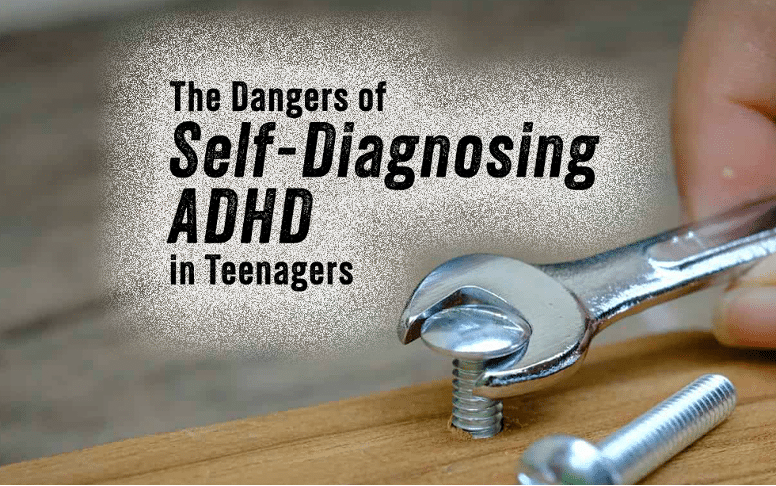3 Action Steps After Reading:
1. Seek Professional Evaluation: If you suspect ADHD, book an appointment with a qualified ADHD specialist rather than relying on online symptom checklists. Professionals like those at Physicians Now ensure a proper diagnosis.
2. Monitor Symptoms Carefully: Write down symptoms, triggers, and lifestyle changes to discuss with a doctor. Symptom tracking helps doctors make a more accurate diagnosis.
3. Avoid Self-Diagnosis in Teenagers: Share this article with parents or friends who may be concerned about ADHD in teenagers. Encouraging professional evaluation is critical for avoiding misdiagnosis.
In today’s fast-paced world, teenagers often face challenges that make it difficult to focus, stay organized, and complete tasks. With the rise of information on the internet, many teens and their parents turn to online resources to self-diagnose issues such as ADHD. However, an article from *El País* [Being distracted doesn’t mean you have ADHD: The danger of self-diagnosis in teenagers], highlights the critical dangers of this trend. The key takeaway from the article is that self-diagnosis, especially for ADHD, can lead to incorrect treatment or no treatment at all for underlying issues that may mimic ADHD symptoms.
This issue is not limited to teenagers, as adults frequently misinterpret their own symptoms as ADHD without a proper evaluation. Our Chief Medical Officer at Physicians Now, Dr. Jeremy McConnell, echoes the concern that an improper or incomplete diagnosis can lead to years of frustration, ineffective treatment, or even worse—unnecessary medication.

The article from *El País* starts by discussing how common it has become for teenagers and their parents to interpret issues such as distraction, forgetfulness, and trouble focusing as ADHD. While ADHD is a legitimate disorder, the article cautions that these behaviors do not automatically mean a diagnosis of ADHD is warranted. The prevalence of ADHD in teens is often overestimated, which can lead to many individuals being misdiagnosed or placed on medication without proper oversight.
The issue of self-diagnosis stems from the ease of access to online symptom checklists and generalized information about ADHD. These resources are often used without proper clinical context or the input of a specialist, leading to misinterpretations of normal developmental behaviors. Moreover, the article stresses that normal teenage behavior—such as being distracted or occasionally struggling to focus—is part of the natural developmental process and should not automatically raise red flags for ADHD.
The piece also emphasizes that ADHD can coexist with other mental health disorders, such as anxiety and depression. These comorbidities further complicate the process of self-diagnosis. Without a professional evaluation, important aspects of a teenager’s mental health can be missed, leaving the root cause of the symptoms untreated.
In the article, mental health professionals advocate for a structured diagnostic approach to ADHD that includes a thorough evaluation of the individual’s medical history, lifestyle, and behavior in different settings. This holistic approach ensures that any overlapping conditions are properly addressed, rather than hastily attributing symptoms to ADHD.
Finally, the article concludes with a warning against jumping to conclusions based on online resources or anecdotal evidence from peers. Instead, parents are encouraged to seek professional help for their teenagers, emphasizing the importance of accuracy in diagnosis and the dangers of unnecessary treatment.
The Danger of Self-Diagnosis in ADHD: Dr. Jeremy McConnell’s Perspective
Dr. McConnell at Physicians Now strongly reinforces the risks outlined in *El País*’ article, particularly when it comes to adolescents and adults seeking ADHD diagnoses without the guidance of a professional. According to him, the complexities of ADHD require a thorough understanding of the patient’s entire medical history. This is particularly important, as the 2017 study published by the NIH found that many cases of late-onset ADHD were actually false positives.
The study showed that approximately 95% of individuals who initially screened positive on ADHD symptom checklists were later excluded from a formal diagnosis. These individuals often had symptoms that could be attributed to other factors, such as heavy substance use or adolescence-limited behavioral changes. Dr. McConnell warns that without a careful assessment, patients may end up misdiagnosed and receive treatment that could be inappropriate or even harmful.
“The NIH study is a reminder of how symptoms can overlap between different disorders,” says Dr. McConnell. “People often mistake other cognitive or psychological issues for ADHD, which makes the role of a trained physician critical in determining the right diagnosis.”
This echoes the conclusions drawn in the *El País* article: while ADHD is a common and treatable disorder, only a trained professional can distinguish between ADHD and other cognitive fluctuations, such as anxiety, depression, or even the cognitive effects of substance use.
Why Professional Diagnosis is Essential
One of the biggest dangers of self-diagnosis in ADHD, especially among teens, is that individuals often skip the critical first step—evaluation by a medical doctor who specializes in ADHD. Without professional insight, many people mistake common teenage or adult behaviors as clinical symptoms of ADHD. This can lead to unnecessary treatments, like stimulant medications, that may not be beneficial or even safe for those who don’t actually have the disorder.
At Physicians Now, we believe that symptoms should be used to encourage individuals to seek out professional evaluation, rather than as a basis for self-diagnosis. As Dr. McConnell suggests, patients should document their symptoms, write down any questions, and bring these notes to their ADHD specialist. This ensures that the diagnosis is based on a comprehensive assessment, rather than a superficial checklist.
Why Choose Physicians Now for ADHD Diagnosis?
Unlike many competitors, Physicians Now offers a highly personalized approach to diagnosing and treating ADHD in both adults and adolescents. We understand the dangers of self-diagnosis and the nuances involved in differentiating between ADHD and other disorders. Our doctors are experienced in the treatment of adult ADHD and you’ll see the same doctor at each visit. With our concierge telemedicine service, patients can get the accurate, tailored treatment they deserve, from the comfort of their own home.
As a 5-Star ADHD and related disorder telemedicine practice, we offer top-quality, personalized treatment plans designed specifically for you. We believe that ADHD diagnosis should be thorough and guided by medical professionals, not online symptom checklists. At Physicians Now, we’re here to help you or your teenager (18+) get a proper ADHD diagnosis and treatment plan that considers every aspect of your life.
